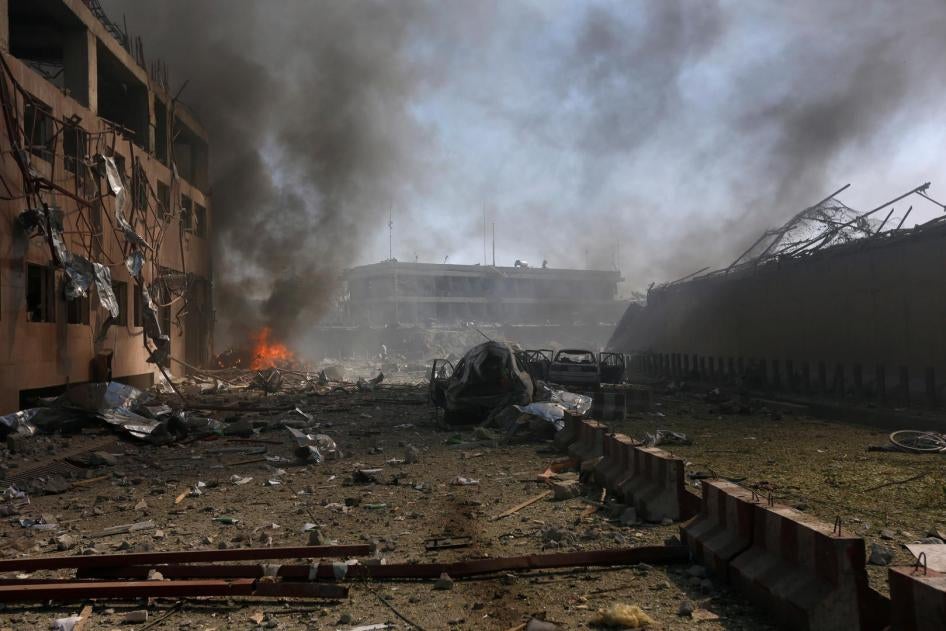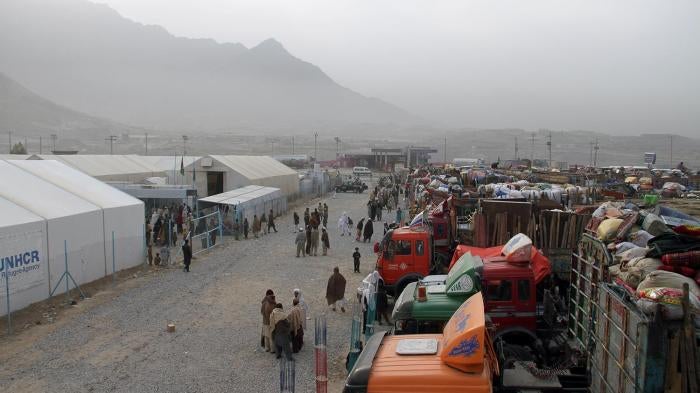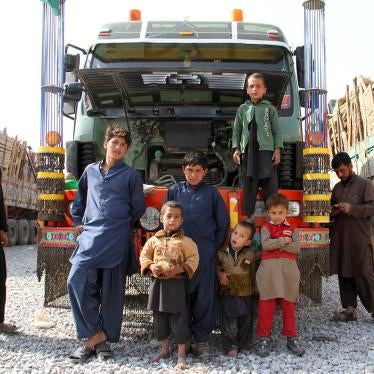Another day, another bomb attack in Kabul, Afghanistan. Old news? Not for the families of the more than 90 people who just lost a loved one. Not for the more than 400 people who have been maimed or otherwise injured. And not for several million Afghans in their country’s capital city – school children, taxi drivers, shoppers – living in constant fear of getting blown up by the next explosion.
Yet for many government officials in Europe, today’s horrific attack on a busy commuter road on the edge of the city’s barricaded, fortress-like diplomatic area appears as same-old, same-old news. Shockingly, even Germany’s leaders, whose embassy was rocked by the massive explosion, seem unshaken.
Just hours after Germany’s foreign minister announced all of its embassy staffers were safe, the country’s interior minister confirmed that it would only briefly suspend its policy of deporting rejected Afghan asylum seekers to Kabul out of “respect for its Embassy staff.” And Germany, which has so far returned hundreds of rejected asylum seekers to Afghanistan, is not alone. Since last year, other European countries, notably Sweden, have deported hundreds of rejected asylum seekers to Kabul. None have suggested today that this is about to change.
These countries are sending back Afghans on the grounds that even though they do not come from Kabul and would likely face harm if returned to their homes in the provinces, they can be returned to Kabul because the city is safe. Yet in February this year, the United Nations released another round of gut-wrenching statistics on Afghan civilian deaths and injuries, concluding that “Kabul province had the highest number of civilian casualties [in the country] due to suicide and complex attacks in Kabul city.”
As thousands more Afghans mourn their dead and injured, European and other officials should remove their rose-tinted glasses and acknowledge that until bombs stop ripping people apart on their way to work, Kabul is no place to return anyone.










